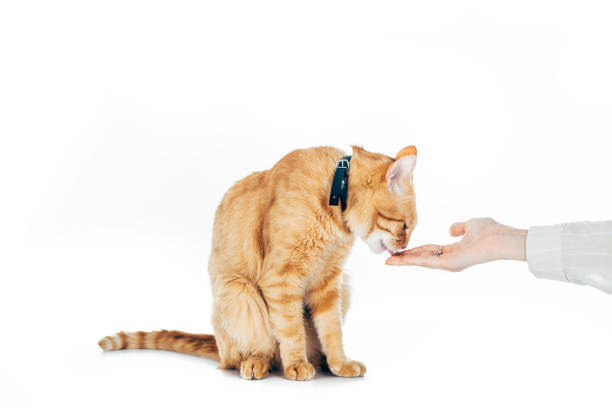Introducing a furry feline friend into your home can be a delightful experience. Cats are known for their independence, grace, and affectionate nature. However, there are certain behaviours that may leave you puzzled or concerned as a cat owner. One such behavior is spraying, which can be accompanied by an unpleasant odor. In this comprehensive article, we will explore the topic of cat spray and answer the burning question: what does cat spray smell like? We’ll also delve into the vet-reviewed facts and behavioral reasons behind this behavior to help you better understand your feline companion.
Understanding Does Cat Spray Smell Like

Before we dive into the olfactory aspect of cat spray, let’s first understand what it actually entails. Cat spraying refers to the behavior where a cat releases small amounts of urine onto vertical surfaces such as walls or furniture. Unlike regular urination in litter boxes, spraying is primarily used as a form of communication between cats or marking territory.
The Smell of Cat Spray
Now let’s address the main question at hand: what does cat spray smell like? The odor of cat spray is often described as pungent, strong, and musky. It has been compared to the scent of ammonia mixed with sulfur or rotten eggs. This distinct smell can permeate through various materials and linger in your home if not addressed promptly.
Vet-Reviewed Facts about Cat Spray
To gain further insights into this behavior, let’s explore some vet-reviewed facts about cat spray:
1. Territory Marking
One primary reason behind cat spraying is territorial marking. Cats have scent glands located in different parts of their bodies, including their urinary tract. By releasing urine onto vertical surfaces, cats leave behind pheromones that convey messages to other cats in the area. These messages serve as a way to establish boundaries and communicate ownership over specific spaces.
2. Stress or Anxiety
Cats may also spray as a response to stress or anxiety. Changes in the household, such as the introduction of a new pet or moving to a new home, can trigger this behavior. It serves as a way for cats to cope with the unfamiliar or uncomfortable situations they find themselves in.
Behavioral Reasons behind Cat Spray
Beyond the physiological factors, there are behavioral reasons that can contribute to cat spraying:
1. Conflict with Other Cats
If you have multiple cats at home, conflicts between them can lead to spraying. Cats may feel threatened by others encroaching on their territory, resulting in marking behaviors.
2. Inadequate Litter Box Conditions
Issues with litter box conditions can also prompt cats to spray. If the litter box is not cleaned regularly or if there aren’t enough litter boxes available for multiple cats, it can create discomfort and lead them to seek alternative locations for elimination.
3. Social Hierarchy
Cats establish social hierarchies within multi-cat households. Spraying can be a way for lower-ranking cats to assert themselves and gain dominance over higher-ranking individuals.
Dealing with Cat Spray: Prevention and Solutions

Understanding why your cat sprays is essential in finding effective solutions and preventing future incidents:
1. Spaying/Neutering
Having your cat spayed or neutered can significantly reduce spraying behavior, especially in unneutered males.
2. Provide Multiple Litter Boxes
Ensure you have an adequate number of clean litter boxes available for your cats. Experts recommend having one litter box per cat plus one extra.
3. Maintain a Calm Environment
Create a stress-free environment for your cat by providing hiding spots, vertical spaces, and plenty of mental stimulation. This can help alleviate anxiety-related spraying.
4. Clean and Neutralize Odors
Promptly clean any sprayed areas with an enzymatic cleaner designed to neutralize the odor. Avoid using ammonia-based cleaners as they can mimic the smell of cat urine and encourage further spraying.
5. Consult with a Veterinarian or Behaviorist
If you’re struggling to address your cat’s spraying behavior, consulting with a veterinarian or behaviorist is highly recommended. They can provide personalized advice based on your cat’s specific needs.
Final Thoughts
Ultimately, cat spraying can be a confusing and frustrating behavior for pet owners. But by understanding the vet-reviewed facts and behavioral reasons behind this behavior, you can take steps to create a safe and peaceful environment for your feline friend. With the right knowledge and solutions, you can help alleviate any anxiety or discomfort that may prompt your cat to spray.
Cat ownership also comes with a certain level of responsibility. It’s important to stay up to date on your cat’s health and well-being – which includes spaying or neutering, providing adequate litter boxes, and monitoring behavioral changes. Taking the time to understand your cat’s needs will not only help reduce any unwanted behaviors but also intensify the bond between you and your furry companion.
FAQS
Q: How often should I clean the litter box?
A: It’s recommended that you clean the litter boxes at least once a day to keep your cat’s environment healthy and hygienic. Additionally, you may want to consider adding new litter every two weeks and replacing the entire box at least once a month.
Q: What are the signs of my cat Spraying?
A: The most obvious sign of your cat spraying is the pungent smell of urine. You may also notice damp spots on vertical surfaces throughout your home. Additionally, cats may back up to a wall or furniture and twitch their tails before releasing a spray of urine.
Q: Are there any other solutions for preventing my cat from spraying?
A: Yes, there are many other solutions for preventing cats from spraying. Some of these include: providing plenty of vertical spaces, offering isolated areas away from other cats, and keeping your cat active with interactive toys. Additionally, consulting a veterinarian or behaviorist can also provide personalized advice based on your cat’s needs.
Q: What can I do if my cat is still spraying?
A: If your cat continues to spray despite the preventive measures you’ve taken, it’s best to consult a vet or behaviorist. They will be able to provide additional insights into the underlying causes and suggest appropriate solutions for your specific situation.
Conclusion
Spraying is a common behavior among cats, but it doesn’t have to be accepted as the norm. By understanding why cats spray, pet owners can take steps to create a safe and comfortable environment for their feline friends. Through spaying or neutering, providing adequate litter boxes, and consulting with veterinarians or behaviorists, cat owners can find effective solutions for reducing or eliminating any unwanted spraying behaviors. Ultimately, being mindful of your cat’s needs and making changes to their environment can ensure a happy and peaceful home for both you and your furry companion!
